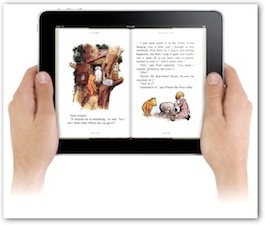A literary adulterer confesses her e-sins
- BARBARA KAY
I was smitten by an enormous pang of guilt when I read that the Nicholas Hoare bookshop, for 40 years a fixture in my neighbourhood's tiny, semi-tony shopping hub, is closing its doors this July.
 |
Only four years ago, on the same street, The Double Hook, an all-canadiana bookstore shut down. So although a few art galleries dot the short strip, that leaves this increasingly charmless Westmount street bereft of literary culture.
Nicholas Hoare himself said that closing the bookstore was a "painful decision," but the combined effect of rising rent and taxes, an aging population (himself included) and the changing character of the street from small retail businesses to banks, real estate offices and fashion outlets had forced his hand. For those reasons plus (here is where my guilt comes in) "electronica," Hoare is closing his Ottawa store as well. Soon there will be only one Nicholas Hoare bookstore in Canada — in Toronto, of course.
It turns out that although the population in our neighbourhood is aging, older people have taken to tablet reading with more enthusiasm than any other demographic bracket. So I am not the golden-oldie pioneer I thought I was; I'm just another lemming to a rising sea, whose waves are swamping the stores I once frequently patronized, and still adore — in principle, if not in practice. For I confess I have not bought a real book at Nicholas Hoare in over a year. I buy real books online, and an increasing number direct to my Kindle.
Can you stand to read one more paean to tablet reading?
If you had told me a year ago that I would be shilling for e-readers, I would have laughed. None of those sterile little machines for me, I assumed. I nodded along with bestselling author Jonathan Franzen when he made his "battle cry against ereaders," claiming they were "not for serious readers." True, at almost 600 pages, Franzen's latest tome, Freedom, was an affront to my beach bag, but it was a real book with real pages and a soul. (Admittedly also true, Franzen should be the last person to complain about e-readers, when 35% of the one million copies of Freedom in circulation are digital.)
I would probably never have started e-reading, but a year ago I was given a Kobo as a birthday gift. I was startled at how quickly I came to love that "little critter," as I was soon affectionately describing it to anyone I could buttonhole on the subject. I loved its unobtrusive portability, not to mention the far lower cost (yes, they're rising, but they're still cheaper than real books), as well as the lightning trajectory from whim to purchase to reading.
There was only one thing wrong with my Kobo. Most of what I read is potential fodder for columns. In real books, I highlight and annotate on copious post-it notes. You can't interact on the Kobo — or you couldn't on my version. So I could only read recreational books on it.
Nice try, Tim, but I still feel like a literary adulterer. |
Then, on my last birthday my family gave me an ipad, and I added the Kindle app. Problem solved: It lets you bookmark, highlight and annotate with ease. I've also been ordering and enjoying some terrific new critical "pamphlet"-style books, 50-page single-issue e-books you can read in one sitting, from Encounter Broadsides, which, according to their blurb, and my experience, "unite an 18th-century sense of political urgency and rhetorical wit with 21st century technology and channels of distribution." Longer than typical essays, and shorter than novellas, at 99 cents each, they are the best intellectual bang for one's literal buck I've ever, well, Encountered.
What really puzzles me is that after a lifetime of affection for soft paper pages that turn, and hard or soft covers that open and close, I not only took to the convenience of tablet reading, I actually like the hard, non-bookish physical apparatus itself and find it adds to my reading pleasure. I love poking the screen and seeing the "page" turn.
This makes me feel very disloyal to the real books that have been with me for all these decades. Between the disapproval I sense emanating from my bookshelves and the guilt I feel about local bookstores closing, I have been looking for a rationale to assuage these constant jabs of conscience. Novelist Tim Parks says that e-books offer "a more austere, direct engagement" with words. And that "this is a medium for grown-ups." Nice try, Tim, but I still feel like a literary adulterer.
Sorry, Nicholas Hoare; it wasn't your fault. I hope we can still be friends.
 This is Meaghen Gonzalez, Editor of CERC. I hope you appreciated this piece. We curate these articles especially for believers like you.
This is Meaghen Gonzalez, Editor of CERC. I hope you appreciated this piece. We curate these articles especially for believers like you.
Please show your appreciation by making a $3 donation. CERC is entirely reader supported.

Acknowledgement
Barbara Kay "A literary adulterer confesses her e-sins." National Post, (Canada) 28 March, 2012.
Reprinted with permission of the author, Barbara Kay, and the National Post.
The Author
 Barbara Kay is a Montreal-based writer. She has been a Comment page columnist (Wednesdays) in the National Post since September, 2003.
Barbara Kay is a Montreal-based writer. She has been a Comment page columnist (Wednesdays) in the National Post since September, 2003.




